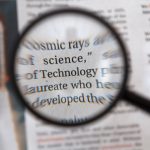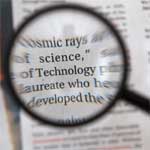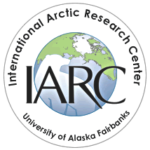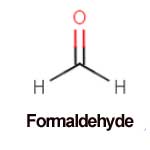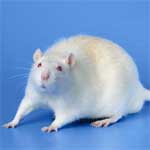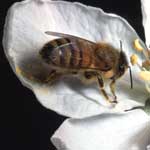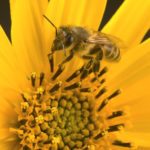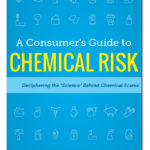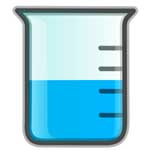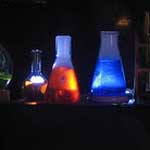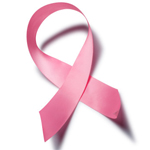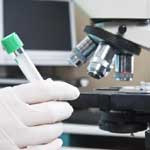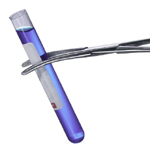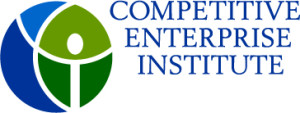"Pruitt’s Rule Ending Secret Science is Pro-science, Pro-consumer," Angela Logomasini, Ph.D. EPA Administrator Scott Pruitt’s proposed rule to increase public access to scientific data makes eminent sense, since transparency is a cornerstone of the scientific process. The public should have access to data that agencies use to pass regulations that impose economic burdens and limit consumer choice. Pruitt modeled this rule after the Honest and Open New EPA Science Treatment (HONEST) Act (H.R. … [Read more...]
Eric Lipton Smears EPA Chemical Office Official Nancy Beck
"New York Times' Eric Lipton Smears EPA Chemical Office Official Nancy Beck," By Angela Logomasini. Recently, Project Veritas released a series of undercover videos that reveal how New York Times journalists are more interested in smearing the Trump administration than in reporting objective news. But you don’t need to go undercover to see examples of such unfair and biased New York Times reporting. A recent example is Eric Lipton’s article related to Nancy Beck, whom Trump selected to work in … [Read more...]
Chlorpyrifos Science
"Point: Trump’s War on Junk Science," By Angela Logomasini. According to many news outlets, President Donald Trump has “declared a war on science.” Yet judging from at least one recent decision, the opposite is true. The Trump administration is trying to prevent policies based on junk science. A key example is the Trump administration’s denial of an activist petition to ban agricultural uses of the pesticide chlorpyrifos, which farmers have safely used for decades. This decision makes sense … [Read more...]
Funding TSCA While Cutting the EPA Budget
"Trump Can Fund Chemical Safety Review while Cutting EPA Budget," By Angela Logomasini. Some observers express doubt that the Trump administration can cut the Environmental Protection Agency (EPA) budget by 31 percent and still fund implementation of the newly reformed Toxic Substances Control Act (TSCA), the law that governs the usage of new and existing chemicals found in consumer products from household cleaners to plastic toys. But a recently leaked EPA memo reveals there are plenty of … [Read more...]
NIH’s Funding Junk Science?
"Who’s Getting Money from NIH?" By Julie Kelly & Jeff Stier. A pair of foreign research organizations have gotten numerous grants for work of unclear value. As Democrats and the scientific establishment howl over President Trump’s proposed budget cuts to the National Institutes of Health (NIH), Congress is investigating whether that agency misspent U.S. tax dollars to fund two European cancer institutions now under scrutiny for conflicts of interest and dubious science. Key lawmakers are … [Read more...]
Drain the Junk Science Swamp
"Draining the Junk Science Swamp," By Angela Logomasini. President Trump’s says he came to Washington to “drain the swamp,” and now his administration is looking for wasteful programs to cut. A great start would be pulling the plug on numerous federal “research” programs that, frankly, have been captured by Washington special interests. In fact, much of taxpayer-funded research serves ideological agendas—especially environmental activism—at the expensive of legitimate scientific inquiry. … [Read more...]
Shine a Light on Regulatory ‘Dark Matter’
"It’s Time to Shine a Light on Regulatory ‘Dark Matter’" By Angela Logomasini and Henry I. Miller. Regulation is not the only way the federal bureaucracy inhibits innovation. President Donald Trump’s desire to shrink the regulatory state by significantly cutting the number of regulations and their impact is laudable. But it won’t be easy, and it won’t be sufficient, because the federal bureaucracy’s tentacles reach deep into private enterprise through a number of non-regulatory programs and … [Read more...]
Over-regulation is Counter-Productive
"Over-Regulating Things Like Asbestos is Counter Productive," By Henry I. Miller. Several years ago I participated in a colloquium whose title was something like “Advancing Technology: Thinking Outside the Box.” The presentations ranged from the ever-more imaginative uses of robots (fascinating) to irrigating the Sahara Desert for growing crops that by mid-century could sustain the planet’s burgeoning population (unconvincing). My lecture was the most mundane: I proposed that smarter and more … [Read more...]
Worst Science Websites
"The Worst Websites for Science in 2016,"By Ross Pomeroy. Two weeks ago, we revealed our picks for the top science websites of 2016. Whether you seek quality coverage of the latest discoveries, have questions about the validity of the latest fads or diets, or are simply looking for a place to sate your burning curiosity, you can count on those outlets to deliver solid, evidence-based content. We cannot say the same for the organizations we'll be mentioning today. The Internet is full of … [Read more...]
‘Advocacy Research’ Discredits Science
"'Advocacy Research' Discredits Science And Aids Unprincipled Activism," By Henry I. Miller and Robert Wager. The scientific research enterprise today is in something of a quandary. Various empirical studies show that 80-90% of the claims coming from scientific articles in peer-reviewed journals fail to replicate. (To simplify that statistic, that’s equivalent to only a 10-20% success rate for recipes from a cookbook.) For the most part this is due to flaws in the design of experiments, … [Read more...]
IARC’s Questionable “Science”
"Of Questionable Evidentiary Weight' — Another Nail In IARC's Glyphosate Coffin" By Hank Campbell. It seems like a hundred years ago that the International Agency for Research on Cancer (IARC) was considered a neutral force for public good - but it was only 51. In 1965, when the Agency was created by the United Nations, there was a lot of optimism about science and the future and IARC was created to instill confidence in the public about the difference between real harm and scaremongering. Read … [Read more...]
It’s Time to End Taxpayer-Funded Junk Science
"Checks And Balances Are Critical To Public Health," By Jeff Stier. Congressional oversight of executive branch agencies is a key element of the checks and balances that prevent accumulation of too much power, as well as abuse of that power, in any one part of government. A review of two recent congressional oversight endeavors now being stymied by the Obama Administration underscores the often-overlooked importance of the oversight process. In both cases, lives are at stake. The first instance … [Read more...]
How We Perceive Risk
"It's Important To Know How Your Emotions Influence Risk Perception," By Henry I. Miller. Science applied to risks–of products, processes or activities–can be baffling to non-experts. Because people want certainty in their lives, the provisional nature of the scientific method–what we “know” only applies until disproven by new data–can be worrying. The public want simple black-or-white answers, rather than nuanced, qualified advice about relative risk, and they may become frustrated when they … [Read more...]
Scientist Rebuke Pseudoscience on “Endocrine Disrupters”
"Well-known Scientists Ready to Stem the Onslaught of Pseudoscience in the EU," By PRNewswire. A meeting was held between Dr. Vytenis Andriukaitis, Commissioner of Health & Food Safety and well established and respected scientists (Prof. Sir Colin Berry, Prof. Alan Boobis, Prof. Wolfgang Dekant, Prof. Daniel Dietrich, Prof. Helmut Greim, Prof. Pat Heslop-Harrison and Prof. Richard Sharpe) in the fields of human risk assessment and endocrine active compounds ("endocrine disrupting chemicals" … [Read more...]
On Bacon and Cancer
"Does Eating Bacon Really Cause Cancer?" By The Center for Accountability in Science. Bacon lovers in California can breathe a sigh of relief—for now, at least. The state Office of Environmental Health Hazard Assessment, which manages Proposition 65 warning labels, has announced it will not require warnings on bacon or other processed meats following news last fall that the World Health Organization’s International Agency for Research on Cancer had classified these meats as carcinogenic. When … [Read more...]
A Word from a Toxicologist
"A Word from a Toxicologist who Defected from the Federal Junk Science Army," By John Dale Dunn. Last week, I discovered Frank Schnell when he wrote a comment on formaldehyde and said it was not a cancer-causing agent and that the EPA had lied about it. His comment was on an American Council on Science and Health posting by Josh Bloom, Ph.D. (organic chemistry), with a 20-year history of pharmaceutical research. Bloom busied himself in the post eviscerating a scare-monger on formaldehyde from … [Read more...]
Untrustworthy Government Science
"Government Scientists are Squandering the Public’s Trust," Center for Accountability in Science. Who do you trust to tell you whether the products you buy are safe? Bloggers like the Food Babe who crow about “yoga mat” chemicals in bread? Or federal environmental and health regulators who review scientific research and determine which products are safe for consumers? According to a recent ORC poll commissioned by the Center for Accountability in Science, respondents overwhelmingly placed the … [Read more...]
(Dis)Honest Company: Scientifically Deceitful
"Why the Jessica Alba Detergent Fiasco Matters," by Josh Bloom. The juicy details of what I’ve named “Waterspot Gate” — the utter farce that could not have possibly made Jessica Alba’s The Honest Company look worse— mostly involve a series of intentional misstatements and outright lies about the company’s products. They only serve to throw more dirt into the grave that the company itself dug. Wall Street Journal reporter Serena Ng, whose thorough and tireless research peeled away one lie after … [Read more...]
The “Science” of Carcinogens
"War On Science: Bogus Human Carcinogens," by Frank Schnell. In the last 15 years, EPA has invented three bogus human carcinogens: dioxin, formaldehyde, and TCE. Prior to the late 1990s, EPA’s cancer Risk Assessment Guidelines (CRAGs) required sufficient evidence of a cause-and-effect relationship in humans before a substance could be classified as a “known human carcinogen”. However, during the late 1990s, EPA modified its CRAGs to allow itself to classify substances as known human carcinogens … [Read more...]
EPA “Crisis” Science Racket
"How Natural Variations Became Environmental Crises: The Word Game," by Frank Schnell. In How Natural Variations Became Environmental Crises: The Numbers Racket, we looked at how officially “safe” levels of exposure gradually went from conservative, to ultra-conservative, to completely ridiculous. Even before the manipulation of numbers became commonplace, the manipulation of words was a major tool in promoting fear about science and keeping it alive. Simple words in common usage, like “risk”, … [Read more...]
Anti-Neonic “Science”
"Scientist for Hire: UK’s David Goulson produces Pre-determined Pesticide Research for Activist Funders?" By Jon Entine. Freedom of Information requests initiated first by USRTK have uncovered a plethora of documentation showing how anti-GMO groups coordinate their messaging, often working with pro-organic scientists who have shown a willingness to deliver studies supporting the industry that funds them while dissing biotechnology research. ... University of Sussex biology professor David … [Read more...]
Activist “Science” Behind Honeybee-Pesticide Debate
"Dave Goulson: Portrait of an Activist Scientist," By The Risk-Monger. Dave Goulson is an activist scientist campaigning against conventional farming and the use of products that help farmers protect their crops. An excellent communicator, he is interviewed regularly on environmentalist programmes posing as a concerned scientist fighting the lobbying machinery of big business. Presently a biologist at University of Sussex, I have just recently learnt that Goulson will be receiving research … [Read more...]
Difference between Health threats and Health Scares
"Health Scares At The Drop Of A Rat," By American Council on Science and Health. Beginning in 1976 with a book entitled Panic In The Pantry, the team of scholars that went on to found the American Council on Science and Health and to form its first trustees and Scientific Advisory Panel, have been clarifying, as the Wall Street Journal called our mission, the difference between a health threat and a health scare. By the mid-1970s, promoting fear and doubt about food and chemicals and the … [Read more...]
Roundup Junk Science
"If You’re Going to Pick Your Poison, at Least Choose the Right One," by American Council on Science and Health. The winner in this month’s “I need a chemistry lesson, and fast” award goes to Anthony Dunton of Acworth, Georgia. Hands down. Dunton was arrested last week for trying to poison a co-worker by putting the weed killer Roundup (glyphosate) into his water. Let’s just give him mixed grades on this one. Dunton denied trying to kill the man, but, rather, just “mess with him.” In this … [Read more...]
The High Cost of Junk Science
"Bad Science Might be Costing Billions," By Center for Accountability in Science. Poor experiment design, accidental contamination, and inadequate data analysis are all major research problems we’ve pointed out on this blog. Now, a new study published in PLOS Biology estimates that problematic research that isn’t easily reproduced may be costing $28 billion per year. Of course, that doesn’t mean all those studies were complete wastes. Some studies included in that figure did find valid results, … [Read more...]
Chemicals and Junk Science
"Jack Dini vs. the World of Junk Science (and the Rest of the World)," by American Council on Science and Health. Talk about a big job. Writing for the Canadian Press, Jack Dini’s new piece, “Chemicals—Don’t Trouble Oneself With the Facts,” goes way past the title. Dini, who wrote a book entitled “Challenging Environmental Myths” (Institution of Engineering and Technology, 2003) comes out with guns blazing, and covers far more than chemicals. He writes about the inability of facts to change … [Read more...]
The Politics of Regrettable Substitutions
"How Does the Government Decide What Is — and What Is Not — ‘Toxic’?" By Henry I Miller, M.D., MS and Angela Logomasini, Ph.D. An increasingly frequent and worrisome phenomenon that unnecessarily threatens human health and the natural environment is “regrettable substitutions,” which refers to bans or limitations on certain products, even though the alternatives might pose risks that are uncertain or greater. It calls to mind the old saying “out of the frying pan and into the fire.” Today, … [Read more...]
Consequences for Dr. Oz’s Advice
"Some Consequences for Dr. Oz’s Flim-Flam'Medical' Advice," by American Council on Science and Health. While hardly commensurate with his unscientific and potentially harmful medical advice, Dr. Oz has received two negative reactions to his unprofessional behavior on his TV show over the past 24 hours. Yesterday, word spread quickly that his former mentor and the entertainment force most responsible for glamorizing his brand of medical nonsense, none other than Oprah Winfrey herself, had at … [Read more...]
A MUST-READ LETTER TO DR. OZ
"A Letter to Dr. Oz from a PhD Microbiologist," by Alex B. Berezow. Dear Dr. Oz, As a TV host, book author, and "America's Doctor," you hold a powerful and privileged position to which few people inside or outside your profession could ever aspire. I must admit to being envious of your influence. I wish that more Americans were fascinated by the complicated nuance of biomedical research than are fascinated by miracle cures. Alas, they are not (yet). I'm working on it, though. I am writing to … [Read more...]
Dr. Oz Rebuked For Quackery
"Dr. Oz Rebuked by Medical Professionals," By Angela Logomasini. For a long time, TV personally and Cardiothoracic surgeon Dr. Mehmet Oz has gotten little criticism for his sensationalist and often junk science-laden advice. Finally, members of Congress from both parties called him to the table—asking him to appear at congressional hearings related to fraudulent claims about dietary supplements and other products. A largely unapologetic Oz said ,“I actually do personally believe in the items I … [Read more...]
Give Oz The Boot
"Dr. Henry Miller To Columbia: Give Oz The Boot," By Josh Bloom. Although I have done my share of writing on Dr. Oz (much of it humorous, and some just in poor taste), the following has nothing to do with me. Dr. Henry Miller, a Robert Wesson Fellow in Scientific Philosophy and Public Policy at the Hoover Institution, who writes regularly about matters concerning junk science and medicine, and their effect on public health policy, has decided to take matters into his own hands. In a letter to … [Read more...]
Flawed Data = Flawed Phthalates Rule
"Using Poor Science and Stale Data to Support Flawed Policy," By Nancy Nord. In 2008, after lead-contaminated toys and other products from China wound up on American store shelves and forced product recalls, Congress rushed to pass legislation intended to protect Americans, giving the Consumer Product Safety Commission -- a small and relatively unknown federal agency-- sweeping new regulatory authority. Now, nearly seven years after that scare, it is increasingly clear that the new powers … [Read more...]
CPSC’s Scientific Shenanigans
" CPSC's Scientific Shenanigans on Phthalates," Angela Logomasini. Many “stakeholders” have complained about the process through which the Consumer Product Safety Commission (CPSC) developed its proposed rule related to a class of chemicals called phthalates—and rightly so. In particular, the agency’s failure to allow public comment and open peer review of its Chronic Hazard Advisory Panel report (CHAP report) underscore the fact that bureaucrats want to avoid scrutiny that might hold them … [Read more...]
Scientists Critical of Media Reporting
"Scientists Blast Media Treatment of Science Stories," by Center for Accountability in Science. Effectively communicating complex research and scientific data to the public is incredibly challenging. While many scientists rely on the media to cover their work, a new survey from the Pew Research Center finds that most scientists think the media’s treatment of science stories poses serious problems. Specifically, the survey found: Read more. … [Read more...]
Weighing the Evidence: Chemical Risks
"Weight Of Evidence: How To Make Sense Of Reports On Toxicology And Pesticides," by News Staff at Science 2.0. There are tens of thousands of human-made chemicals circulating today and some have been bad despite studies that didn't initially find harm, yet almost every chemical is under siege by environmental groups, and they all claim science is on their side. Everything from bisphenol A used in plastics to neonicotinoid pesticides to glyphosate weed-killers are criticized by lawyers at … [Read more...]
Green Chemistry: NYT Gets It Wrong
"The New York Times Needs Chemistry Lesson (Badly)," By American Council on Science and Health. An op-ed in the November 9 New York Times, entitled “Making Chemistry Green,” by Robert S. Lawrence and Rolf U. Halden could have been entitled “Green in Chemistry.” based on some rather obvious errors. ... “We should regulate chemicals as we understand them: in groups. Instead of regulating one compound at a time..” Bloom: “No: that’s exactly what we should not do. Within classes of chemicals, very … [Read more...]
Friends of the Earth’s Phony Science
"Espousing Phony Science? You Better Hope Hank Campbell Doesn’t Find Out," By American Council on Science and Health. ACSH friend (and the creator of the enormously popular Science 2.0 website) has the uncanny ability to sniff out bad (and hypocritical) science, and when he does, he is not shy about speaking his mind. This time he goes after the radical environmental group Friends of the Earth, and by the time they read his piece they will not be “Friends of Hank.” His message is about the … [Read more...]
Tackling Anti-Chemical, Unscientific Nonsense
"Manmade or Natural, Tasty or Toxic, They're All Chemicals …" by Mark Lorch. Chemicals are bad, right? Otherwise why would so many purveyors of all things healthy proudly proclaim their products to be "chemical-free" and why would phrases such as "it's chock full of chemicals" be so commonly used to imply something is unnatural and therefore inherently dangerous? On one level these phrases are meaningless – after all, chemicals are everywhere, in everything. From the air that we breathe to the … [Read more...]
Consumers’ Guide to Chemical Risk
"Science Facts and Chemical Scares," By Angela Logomasini. Will these chemicals make me fat? That sounds like a weird question, but some consumers may actually have such worries, thanks to a constant barrage of news headlines suggesting that synthetic chemicals—an even some naturally occurring ones—are responsible for nearly every public health problem imaginable. This website and CEI‘s A Consumers Guide to Chemical Risk: Deciphering the “Science” Behind Chemical Scares booklet are designed … [Read more...]
Autism and Toxic Exposures
"On Autism, Environmental Toxicants, And Bias," by Emily Willingham. Two clinicians who “utilize detoxification methods in their clinical practices” together with a third author have published an epic review in Translational Psychiatry claiming to evaluate the evidence for the involvement of environmental contaminants in autism. While we obviously want to limit contaminant exposure, autism doesn’t emerge here as the reason for doing so. Something that does emerge, however, looks a lot like … [Read more...]
Dopey Messages and Chemical Risk
"The Dopes Make The Poison," By Josh Bloom. Wherever he is, Philippus Aureolus Theophrastus Bombastus von Hohenheim a/k/a Paracelsus must be doing the Foxtrot in his grave. Because somehow a bunch of dopes have managed to “correct” something he got absolutely right 600 years ago. You know what it is. Unfortunately, the dopes are not so dopey when it comes to spreading their message: Because a chemical is toxic or carcinogenic in high doses (usually in rodent experiments) that it poses a danger … [Read more...]
Rats! “Relevant” Chemical Exposures Are Not Relevant
"Close Enough For NIEHS Work," By Steve Hentges. The subject of endocrine disruption is not particularly new, with extensive scientific and regulatory attention to endocrine disrupting chemicals (EDCs) over the last 20 years or so. ... Quite a few natural and synthetic chemicals exhibit endocrine activity but, in spite of 20 years of research, the field of endocrine disruption continues to be ill-defined and highly controversial. Two of the current controversies revolve around the related … [Read more...]
Europe’s Precautionary Junk Science
"Junk Science Rules in the EU, says Parliamentarian," by American Council on Science and Health. A Wall Street Journal Op-ed by a member of the EU Parliament decries the direction being taken by science there: it’s back to the dark ages as fear trumps evidence. In a recent opinion piece in the Wall Street Journal, MEP Julie Girling, a Brit on the Parliament’s Environment (and Agriculture) committees, issues a warning about the direction EU chemical food regulation is headed: smack-dab into a … [Read more...]
Weak Science Garners Headlines
"Scare Journalism And Miracle Cures: American Media Prefer Weak Observational Studies," By Hank Campbell. A new analysis has affirmed what many in the science audience already knew; mainstream media prefer weak observational studies. It's why you're reading this article here instead of the New York Times. And that is not just in regards to social psychology correlations made using surveys of college students or sociology mysticism, it happens in medical coverage too. The examination found that … [Read more...]
Science Under Attack
"The Latest Epidemic To Infect The Scientific Community? Bad Science," by Patrick Michaels. Last month, 2013 Nobel-prize recipient Randy Schekman made quite a few waves in the science world, when he announced, the day before receiving his award, that he would no longer send papers to Science, Nature, and Cell. These are probably the three most prestigious journals in the world. His accusation is that they are “damaging science” by selectively publishing trendy “headline science” (my words) at … [Read more...]
Scientists Say Chemical Policy Guided by Junk Science
"Politics, Environmentalism Beating Out Science In Regulating Risk Say Experts," by Trevor Butterworth. A survey of three professional societies, each focused on risk assessment, reveals that science is being pushed aside by politics and environmental advocacy when it comes to protecting the public from the risks of chemicals. When asked to weigh the most important factor that should go into managing risk, the scientists overwhelmingly said science (98 percent). But when asked to weigh the … [Read more...]
EPA Appoints “Science” Official
"In the mood for some nice government-speak? EPA appoints new 'Scientific Integrity Official,'” by American Council on Science and Health. Well, we can all rest a little uneasier today: thanks to a new EPA appointee, there will be a sudden and profound uptick in the environmental agency’s integrity when evaluating research and formulating scientific policies. Not. In announcing the creation of a new Orwellian-sounding position called the “scientific integrity official,” EPA administrator Gina … [Read more...]
Unscientific EU Pesticide Regulations
"Bad Science Could Kill Global Trade Talks," by John R. Block. Has irresponsibility gone intercontinental?...The European Commission has laid out a set of new rules that could effectively ban a quarter to a third of U.S. agricultural output and keep out U.S.-made products for controlling weeds, funguses and insects. The United States sets standards for pesticides essential to providing the world's food needs based on scientifically determined levels of safety, then applies a 100 to 1000 fold … [Read more...]
Cal EPA’s Junkscience on Breast Cancer Risk
"Over-Reaching California EPA Regulators Promoted A False Breast Cancer Link," by Geoffrey Kabat. In 2005 the California Environmental Protection Agency (Cal EPA) issued a voluminous report on the health effects of exposure to environmental tobacco smoke (ETS) which attracted attention for its rash claim that ETS was associated with increased risk of breast cancer. Thirteen years earlier the US EPA had published a report showing a weak link between ETS and developing lung cancer. But, of … [Read more...]
Corrupted Science
"Whatever Happened To Science?" by Michael D. Shaw. For the Baby Boomers, born under the halo of victory in World War II, and into the 1950s, one of the key themes was the promise of Science. Electrical power--courtesy of splitting the atom--would be so plentiful that consumers would simply pay a flat monthly fee, and the discovery of the structure of DNA meant (somehow, although this was never fully explained) that a cure for cancer was just beyond the horizon. The successful rollout of the … [Read more...]
Junk-Science Attacks on Consumer Products
"Junk Science Attacks On Important Products And Technologies Diminish Us All," By Dr. Henry Miller. As far back as 1995, renowned American astronomer and science popularizer Carl Sagan expressed concern about the trend in this country toward a society in which, “clutching our crystals and religiously consulting our horoscopes, our critical faculties in steep decline…we slide, almost without noticing, into superstition and darkness.” Almost two decades later, thanks in large part to the actions … [Read more...]
Faulty Science Abounds
"There Are A Thousand Ways To Do An Experiment Wrong," by By Henry I. Miller and Jeff Stier. The 18th century philosopher and economist Adam Smith observed, “People of the same trade seldom meet together, even for merriment and diversion, but the conversation ends in a conspiracy against the public, or in some contrivance to raise prices.” That view is one justification for giving federal agencies so much money, control and discretion over commerce and other aspects of our lives. And when it … [Read more...]
Scientists Take Stand Against Junk Science
"Scientists Warn of Dangers of 'Precautionary Science,'" by Angela Logomasini. Eighteen scientists recently weighed in on the unscientific and dangerous nature of the so-called “precautionary principle” in the July issue of the journal Food and Chemical Toxicology. The article follows on the heels of a substantially similar letter to the EU president’s Chief Scientific Adviser that dozens of scientists signed in protest of the European Union’s draft regulation on endocrine active chemicals. … [Read more...]
Medical Doctor Questioning the Wisdom on Dr. Oz
"The Great and Powerful (Dr.) Oz, Dissected in The New Yorker, by Orac." Although physicians have been trying to base their craft on science for hundreds of years, it’s really only been in the last century or so that they’ve succeeded. Yet still some would like to go back to the way it was. They yearn for the days when doctors were “healers” and shamans, the way medicine was for hundreds and hundreds of years before science intruded. Unfortunately, one of those physicians happens to be … [Read more...]
Gridlock and TSCA
"When Gridlock Is Good," by Angela Logomasini The chemical Bisphenol A (BPA)–which is used to make hard clear plastics and resins that line food containers–regularly appears in news headlines claiming the substance causes everything from heart disease to obesity. But a new study on the topic shows that much of this “research” is little more than junk science. Read the full article on OpenMarket.org. … [Read more...]
EPA Science and Siloxanes
"Chemical fight offers early look at Obama's second-term EPA," by Jeff Stier In an op-ed in today’s Washington Examiner, I explain how the second Obama administration’s Environmental Protection Agency will seek to use sound bites, rather than sound science, to pursue an agenda of more excessive and more costly regulation. And when possible, they’ll try to do it below the radar. I write ...Read the full article on the National Center Blog. … [Read more...]
Activism and Cancer Classifications
"How Activism Distorts The Assessment Of Health Risks," by By Geoffrey Kabat. The International Agency for Research on Cancer is renowned for producing assessments of carcinogens. But it appears that some of the agency’s evaluations may overstate the risks, for reasons that tell us a great deal about the science and politics of risk assessment. Read the full article on Forbes.com. … [Read more...]
Cancer Agency Questioned
"Respected cancer agency maybe shouldn’t be," by American Council on Science and Health. Based in Lyon, France, the International Agency for Research on Cancer is a widely respected body that produces assessments of carcinogens for use by regulators and researchers. But reputable scientists are now disassociating themselves from IARC and its research methods, a cancer epidemiologist at the Albert Einstein College of Medicine writes in Forbes. Read the full article on ASCH Dispatch. … [Read more...]
How to Detect Junk Science
"10 Questions To Distinguish Real From Fake Science," by Emily Willingham. Pseudoscience is the shaky foundation of practices–often medically related–that lack a basis in evidence. It’s “fake” science dressed up, sometimes quite carefully, to look like the real thing. If you’re alive, you’ve encountered it, whether it was the guy at the mall trying to sell you Power Balance bracelets, the shampoo commercial promising you that “amino acids” will make your hair shiny, or the peddlers of “ natural … [Read more...]
Fraud Science on the Rise
"Publish and Perish: Scientific Fraud on the Rise," by American Council on Science and Health ACSH often reports on junk studies that employ dubious statistical methods — including our favorites: GIGO (garbage in, garbage out) and “data-dredging” — in order to produce valid-appearing studies crafted to yield predetermined results. But it seems like some researchers are actually engaging in not just junk science, but conscious fraud. Read the full article in ACSH Dispatch. … [Read more...]
Statistics, Regulation, and EPA
"Does Moneyball work for the EPA?: New EPA Particulant Regs Puffery?" by C. Johnson Back in 2003, Michael Lewis wrote “Money Ball,” a book about how an Oakland, CA baseball team under head coach Billy Beane used player statistics to hire team members that gave them the greatest chance of a championship season at the lowest cost. So by 2009 it was pretty clear what was coming when President Obama’s chief regulator, Cass Sunstein, began talking about how federal regulators should act less than … [Read more...]
Environmental Left At Odds with Science
"Great New Book on Science and the Environment," by Todd Meyers. One of the consistent issues we address here is the gap between the science and Washington's environmental policy - even as policymakers and politicians claim to be following the science. Now there is a great book from the editor of Real Clear Science highlighting the many ways left-wing environmentalists ignore the science when it is inconvenient to their ideology. "Science Left Behind," by Alex Berezow and Hank Campbell … [Read more...]
Obama Regulatory Reform Falls Short
"Regulatory Reform? Really?" by Jeff Stier In a piece in today’s Townhall.com, I explain how the administration’s regulatory record doesn’t match it’s reform rhetoric. "The Obama Administration would like to have us believe that his agencies have struck a reasonable approach to using its regulatory powers. In his Executive Order on regulatory reform last year, the president proclaimed (in part), “Our regulatory system must protect public health, welfare, safety and our environment while … [Read more...]
Scientific Integrity Lacking at New York Times
"Scientific Illiteracy Is An Attack On Science Integrity," by Hank Campbell. New York Times opinion columnist Nick Kristof is at it again. Despite pleas, even from people inclined to like the New York Times and people inclined to side with him politically, he refuses to talk about science a little less or at least learn a little more. Read the full article on Science 2.0. … [Read more...]
Consumer Product Safety Commissions Ignores White House
"Democratic Commissioners Marching to a Different Drummer," by Nancy Nord. When the president issues an executive order, Cabinet-level departments get in line with administration policy. Though independent regulatory commissions (technically not part of the administration) are not required to follow executive orders, they usually try. After all, the agencies’ leaders are presidential appointees, and executive policy should be consistent across the executive branch. Given this, it is curious … [Read more...]
Public Health Costs of Regulation
"Regulation And Government Science Cost Us More Than Dollars," By Angela Logomasini Today, the Independent Women’s Forum blog highlights a new NERA Economic Consulting study (produced for Manufacturers Alliance for Productivity and Innovation) on the costs of regulation. IWF’s Emily Wismer notes: "According to the report, a major federal regulation is one for which compliance costs more than $100 million per year ... Regulations are meant to keep us safe and should increase the quality and … [Read more...]
Science in Government and the Private Sector
"There Are A Thousand Ways To Do An Experiment Wrong," by Henry Miller and Jeff Stier on Forbes.com The 18th century philosopher and economist Adam Smith observed, "People of the same trade seldom meet together, even for merriment and diversion, but the conversation ends in a conspiracy against the public, or in some contrivance to raise prices." That view is one justification for giving federal agencies so much money, control and discretion over commerce and other aspects of our lives. And … [Read more...]
Improving Scientific Research
"A Reality Check for Scientific Studies? by American Council on Science and Health." Scientific investigation relies on the publication of peer-reviewed studies to communicate advances in research, including medical research. Over the course of the last decade, however, several important paradigms have been found baseless. Now, a new project, the “Reproducibility Initiative,” announced last Tuesday by the company Science Exchange, will provide researchers with an opportunity to replicate their … [Read more...]
